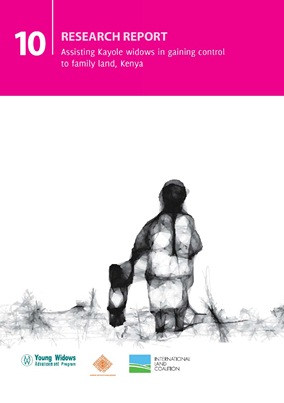Resource information
Access to and control over land is crucial for family well-being and food security in Kenya. Most land in Kenya is acquired through inheritance of family ancestral land, which is mostly passed down the male line.
The death of a husband spells doom for the widow as it threatens her psychological and physical wellbeing. Often, she is blamed for the misfortunes in the family and punished by being chased away from her matrimonial home and all properties may be taken from her by in-laws. These tragedies are worse for young widows. They are new to their matrimonial homes and they can not mobilise local justice systems in their defence. Equally, they have no power in claiming traditional forms of wealth, like land or domestic animals, their husbands might have accumulated or inherited.
Against this backdrop, the Young Widows Advancement Program (YWAP) carried out an action research as an attempt to assist widows to regain property – especially land - through systemic documentation of their experiences.
The project research was conducted through interviews, group discussions with widows, women leaders and local leaders over a period of one year, and led to greater understanding of the difficulties that young widows and their children undergo due to property grabbing, disinheritance and eventual loss of family land.
You can download this publication below or from the International Land Coalition's website.
This work was carried out as part of a 3-year collaborative project entitled “Securing Women’s Access to Land: Linking Research and Action”, coordinated by the International Land Coalition (ILC), the Makerere Institute for Social Studies (MISR) of Makerere University in Uganda, and the Institute for Poverty, Land and Agrarian Studies (PLAAS) of the University of Western Cape in South Africa. This report is part of a wider initiative on Women’s Land Rights. If you would like further information on the initiative and on the collaborating partners, please feel free to contact the International Land Coalition.

